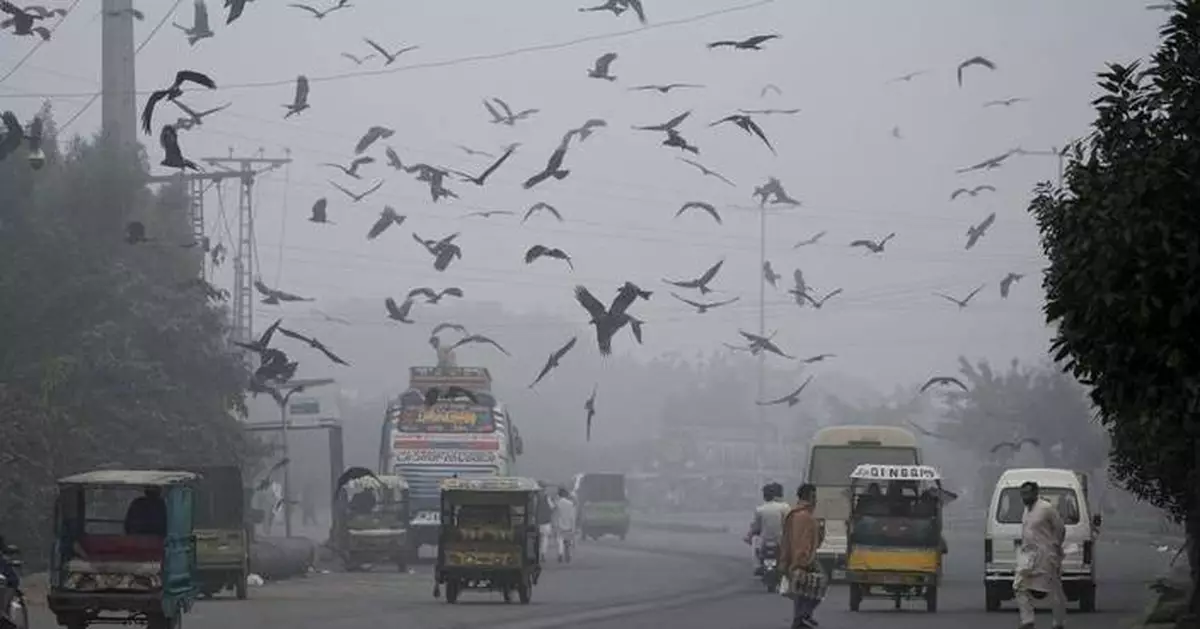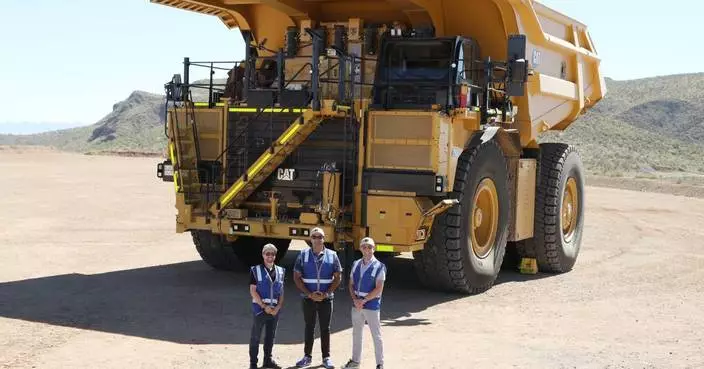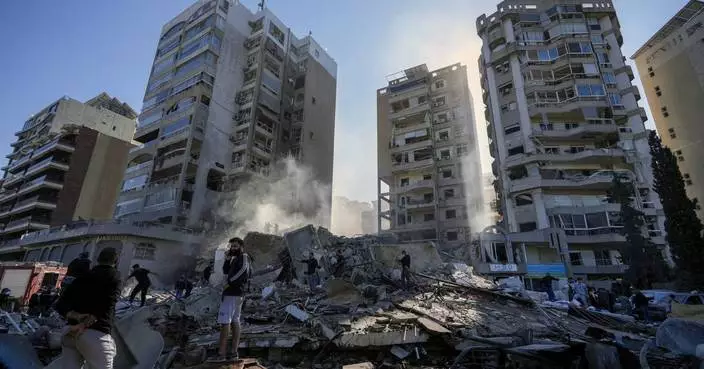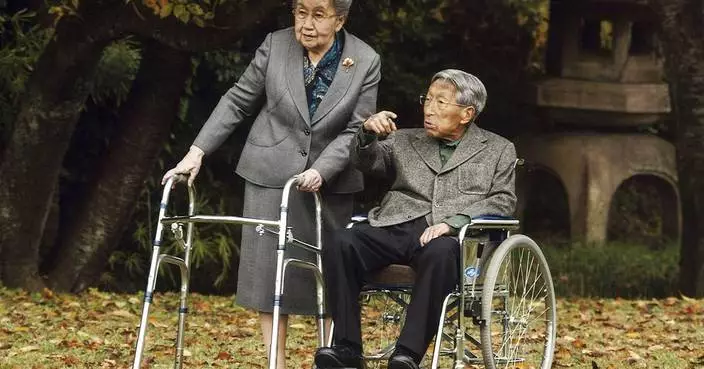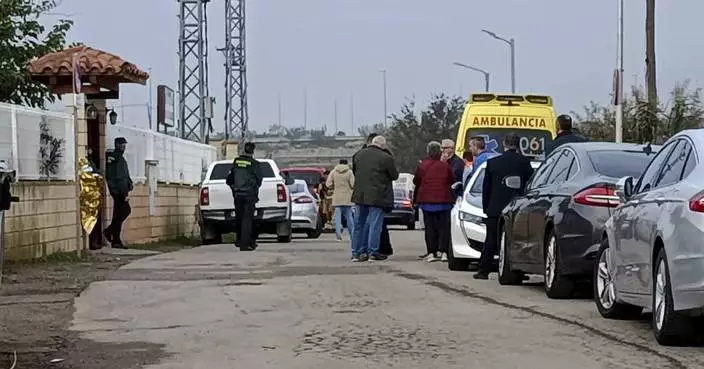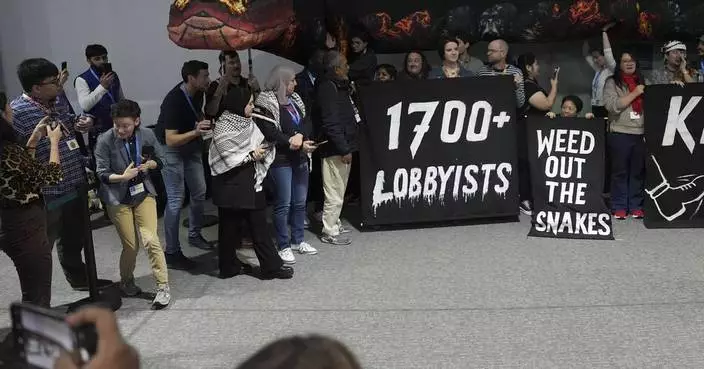LAHORE, Pakistan (AP) — A Pakistani province declared a health emergency Friday due to smog and imposed a shutdown in two major cities.
Smog has choked Punjab for weeks, sickening nearly 2 million people and shrouding vast swathes of the province in a toxic haze.
A senior provincial minister, Marriyum Aurangzeb, declared the health emergency at a press conference and announced measures to combat the growing crisis.
Time off for medical staff is cancelled, all education institutions are shut until further notice, restaurants are closing at 4 p.n. while takeaway is available up until 8 p.m. Authorities are imposing a lockdown in the cities of Multan and Lahore and halting construction work in those two places.
“Smog is currently a national disaster,” Aurangzeb said. “It will not all be over in a month or a year. We will evaluate the situation after three days and then announce a further strategy.”
Average air quality index readings in parts of Lahore, a city of 11 million, exceeded 600 on Friday. Anything over 300 is considered hazardous to health.
The dangerous smog is a byproduct of large numbers of vehicles, construction and industrial work as well as burning crops at the start of the winter wheat-planting season, experts say.
Pakistan’s national weather center said rain and wind were forecast for the coming days, helping smoggy conditions to subside and air quality to improve in parts of Punjab.
Dr. Muhammad Ashraf, a professor at Jinnah Hospital Lahore and Allama Iqbal Medical College, said the government must take preventative measures well before smog becomes prevalent.
“It is more of an emergency than COVID-19 because every patient is suffering from respiratory tract infections and disease is prevailing at a mass level,” he told The Associated Press earlier this week.
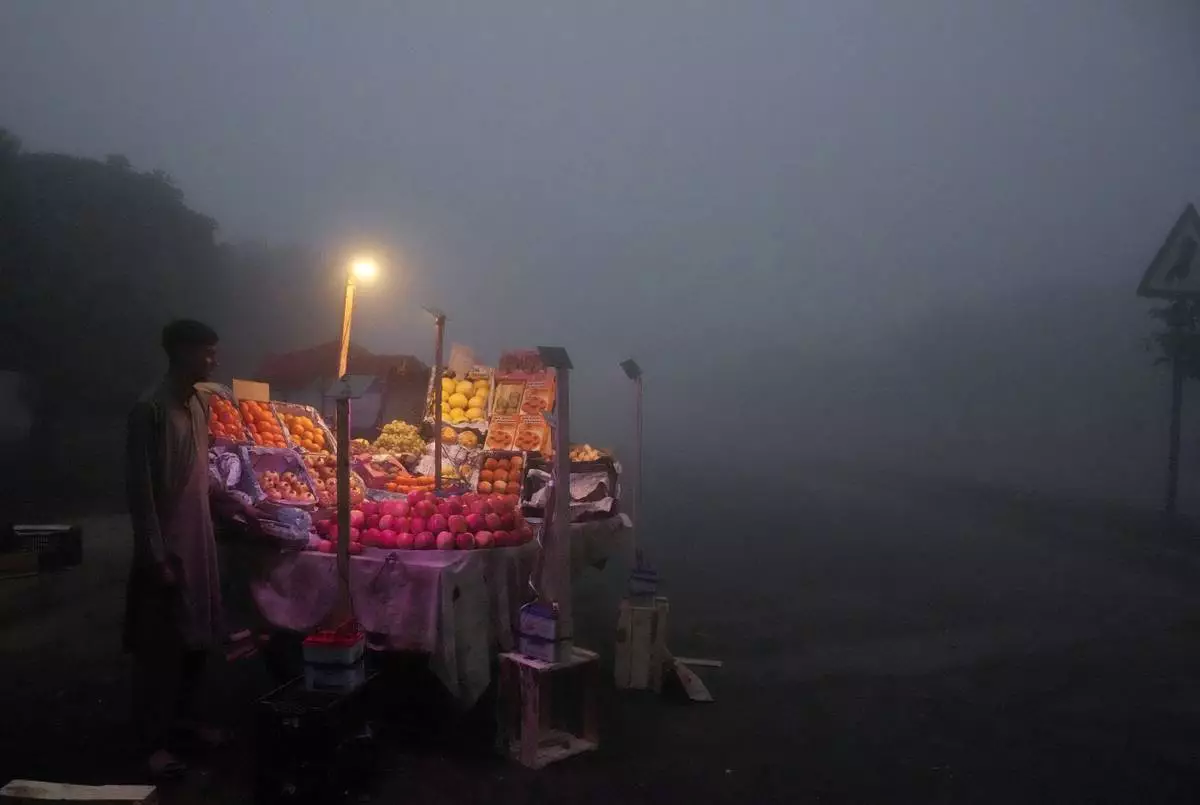
A fruit seller arranges his stall in early morning as smog envelopes the area of Lahore, Pakistan, Thursday, Nov. 14, 2024. (AP Photo/K.M. Chaudary)
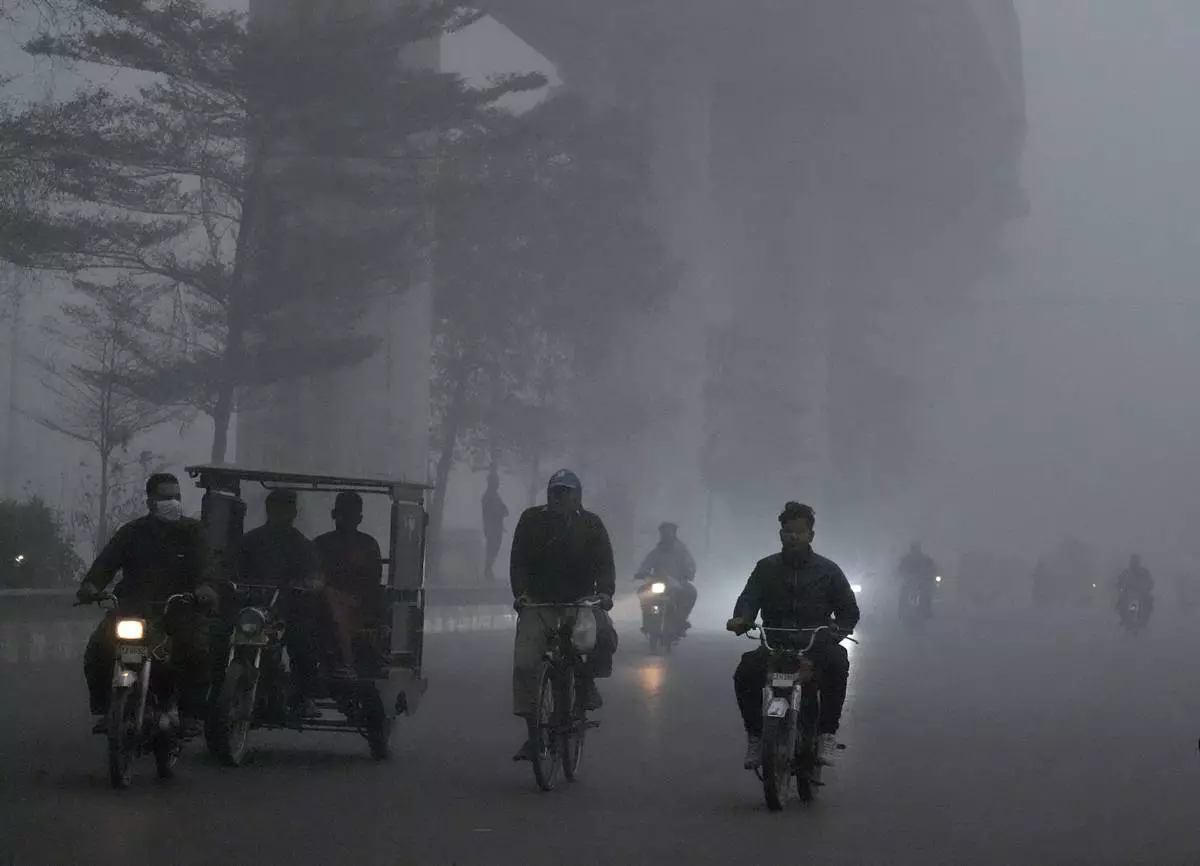
Motorcyclists move slow due to reduce visibility caused by smog enveloping the area of Lahore, Pakistan, Thursday, Nov. 14, 2024. (AP Photo/K.M. Chaudary)
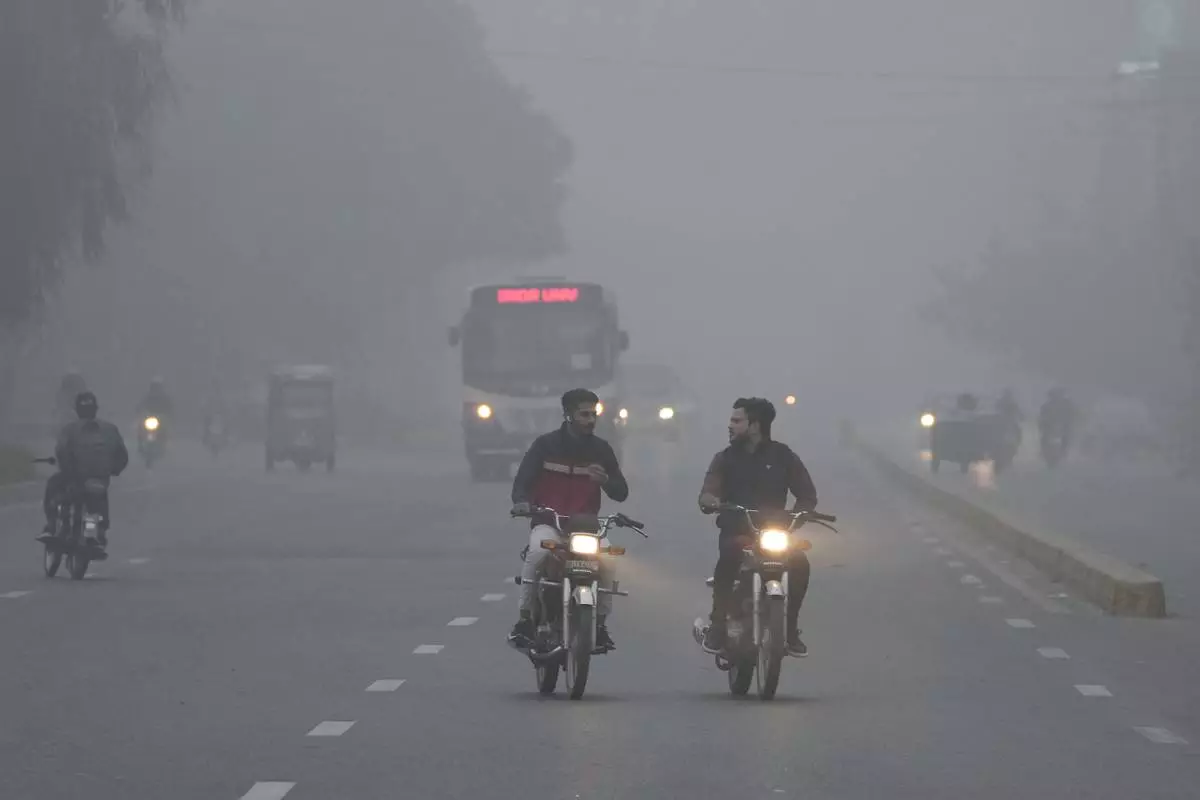
Vehicles and motorcyclists move with headlights on due to reduced visibility caused by smog enveloping the area of Lahore, Pakistan, Wednesday, Nov. 13, 2024. (AP Photo/K.M. Chaudary)
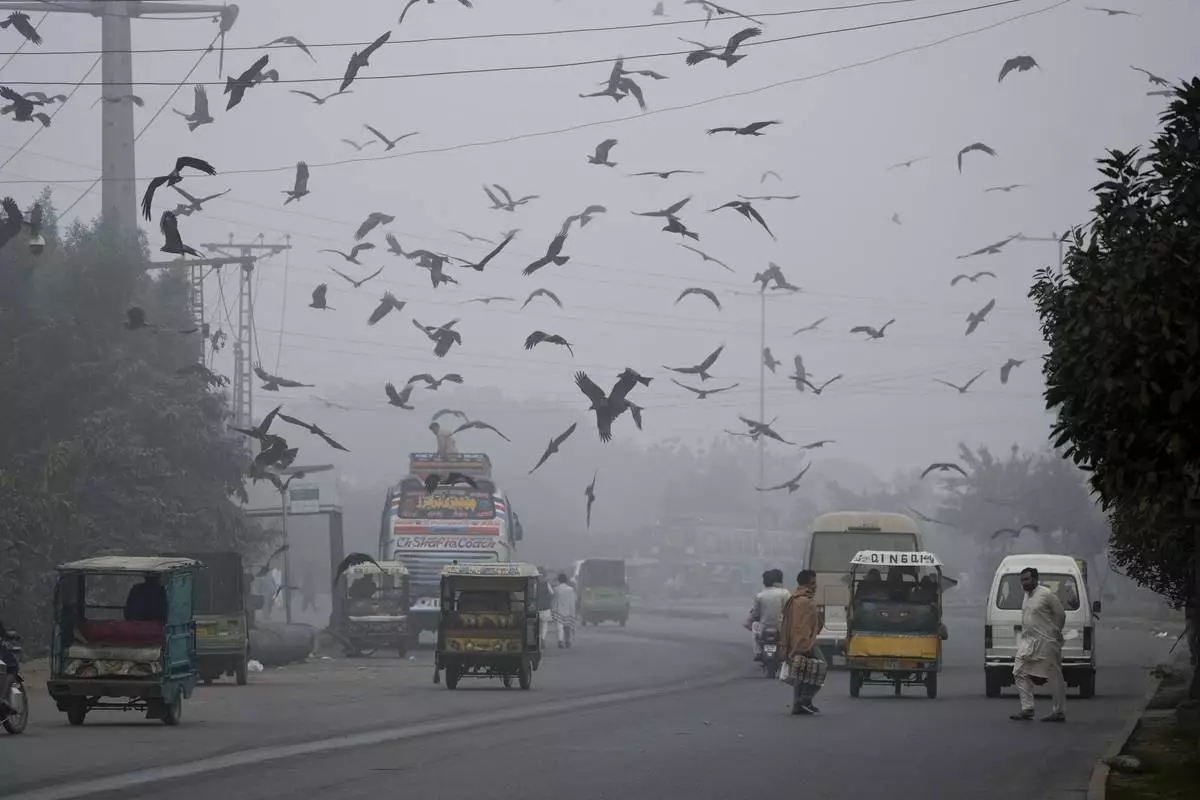
People cross a road as smog envelopes the areas of Lahore, Pakistan, Wednesday, Nov. 13, 2024. (AP Photo/K.M. Chaudary)
BEIRUT (AP) — A top Iranian official pledged his country's unwavering support for Lebanon after talks Friday with Lebanese leaders on the ongoing war between Israel and Hezbollah, which came as the United States continued actively pushing both sides to agree to a new cease-fire deal.
Ali Larijani, an adviser to Iran’s supreme leader Ali Khamenei, said he hoped circumstances would soon improve in Lebanon so that displaced people could return home.
“The main aim of our visit is to loudly say that we will stand by Lebanon’s government and people,” Larijani told reporters after separate meetings with Parliament Speaker Nabih Berri and caretaker Prime Minister Najib Mikati.
The U.S. has been trying to broker an end to the fighting between Israel and Hezbollah, which came as the 13-month war with Hamas broadened in September into southern and eastern Lebanon as well as Beirut’s southern suburbs.
Both Hezbollah and Hamas are backed by Iran, and Hezbollah began firing rockets into northern Israel the day after Hamas’ surprise attack into Israel on Oct. 7, 2023 ignited the war in Gaza.
According to reports in Lebanese media, U.S. Ambassador Lisa Johnson has handed over a draft of a proposed deal to end the Israel-Hezbollah war to Parliament Speaker Nabih Berri, who has been leading the talks representing Hezbollah.
A Lebanese official confirmed Friday that Johnson visited Berri but refused to say whether a draft was handed over.
Another Lebanese official confirmed that Beirut has received a copy of a draft proposal that the U.S. sees as suitable to end the Israel-Hezbollah war based on U.N. Security Council resolution 1701 that ended the war in summer 2006 between Israel and Hezbollah.
The official did not give details other than to say Israel was insisting that some guarantees be included.
Both spoke on condition of anonymity because they were not authorized to speak to the media about the ongoing talks.
The U.S. Embassy refused to either confirm or deny the reports.
Larijani flew in Friday from neighboring Syria where he held similar talks a day earlier with President Bashar Assad. Syria’s state news agency said Assad and Larijani discussed the “ongoing aggression on Palestine and Lebanon and the necessity of stopping it.”
In addition to supporting Hamas, Iran is a main backer of Hezbollah and for decades has been funding and arming the Lebanese militant group.
Asked if he was visiting to try and thwart U.S. efforts to end the Israel-Hezbollah war, Larijani said, “We are not trying to blow up any effort but we want to solve the problem and we will stand by Lebanon, whatever the circumstances.”
Larijani's visit to the Lebanese capital was punctuated with a renewed aerial attack by Israel on the southeastern edge of the city.
An image captured by an Associated Press photographer showed what appeared to be an 11-story residential building in the Tayouneh area, few kilometers (miles) from central Beirut, about to be hit by a bomb, then bursting into flames.
There were no immediate reports of casualties but the bomb hit a lower level of the building, turning much of it to rubble. The Israeli military had issued a warning ahead of the attack, claiming it was a facility that belonged to Hezbollah.
Funerals were held Friday for 11 people killed Thursday in a series of Israeli airstrikes in and around the central Gaza Strip city of Deir al-Balah.
The injured and dead were all taken to the Al-Aqsa Martyrs Hospital where they were seen by an AP reporter. Two children were among the dead.
The health ministry in Hamas-controlled Gaza said Friday that overall 28 people had been killed and 120 injured in the past 24 hours.
On Thursday, the United Nations Security Council’s 10 elected members circulated a draft resolution demanding “an immediate, unconditional and permanent cease-fire” in Gaza as well.
The draft resolution, which was sent to the council’s five permanent members, reiterates the council’s demand “for the immediate and unconditional release of all hostages” seized during Hamas’ surprise attacks on southern Israel. Israel says about 100 are still being held, though not all are believed to be alive.
The U.S., Israel’s closest ally, holds the key to whether the Security Council adopts the resolution. The four other permanent members — Russia, China, Britain and France — are expected to support it or abstain.
The draft, obtained Thursday by The Associated Press, also demands immediate access for Gaza’s civilian population to humanitarian aid and services essential for their survival.
The draft resolution would also express the council’s “deep alarm over the ongoing catastrophic humanitarian situation in Gaza including the lack of adequate healthcare services and the state of food insecurity creating a risk of famine notably in the north.”
It would deplore all attacks against civilians and “civilian objects” and all acts of terrorism.
The Israel-Hamas war began after Palestinian militants stormed into Israel on Oct. 7, 2023, killing some 1,200 people — mostly civilians — and abducting 250 others.
Israel’s military response in Gaza has killed more than 43,000 people, Palestinian health officials say. The officials do not distinguish between civilians and combatants, but say more than half of those killed have been women and children.
Hezbollah began firing into Israel on Oct. 8, 2023, in solidarity with Hamas in the Gaza Strip. Since the conflict erupted, more than 3,200 people have been killed and more than 14,000 wounded in Lebanon, the Health Ministry reported.
Lebanon has also suffered some $8.5 billion in physical damage and economic loss, according to a World Bank report Thursday.
In the town of Douris near the city of Baalbek in eastern Lebanon, rescue teams continued searching through the rubble Friday at the site of an Israeli strike that hit a civil defense center the night before.
The Lebanese Civil Defense said in a statement that 13 bodies had been recovered, all of them employees and volunteers of the emergency services agency, as well as some other remains that will require DNA testing.
The General Directorate of Civil Defense in a statement expressed “deep regret over this direct attack on its members” and said that its centers “will continue to respond to relief calls and continue with its humanitarian mission, no matter how great the challenges and sacrifices are.”
Rising reported from Bangkok. Abby Sewell in Beirut and Edith Lederer at the United Nations contributed to this report.
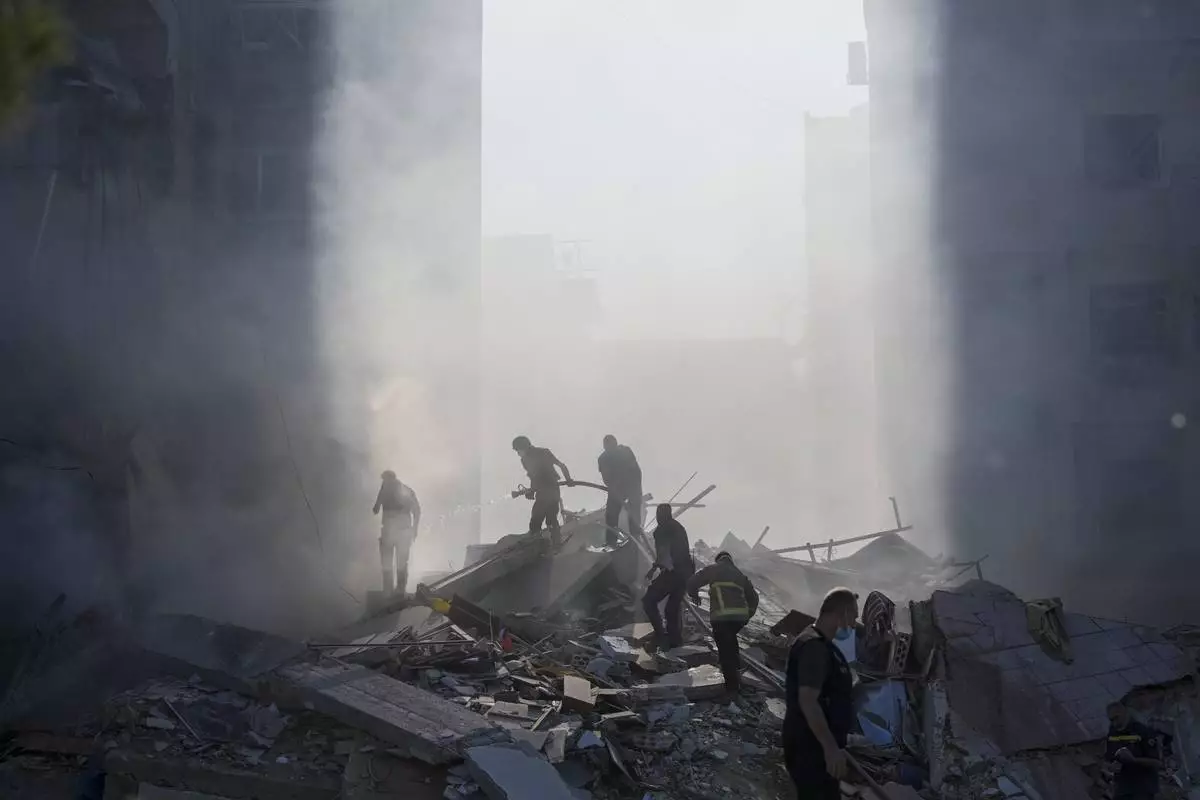
Civil defense workers extinguish a fire as smoke rises from the site of an Israeli airstrike in Tayouneh, Beirut, Lebanon, Friday, Nov. 15, 2024. (AP Photo/Hassan Ammar)
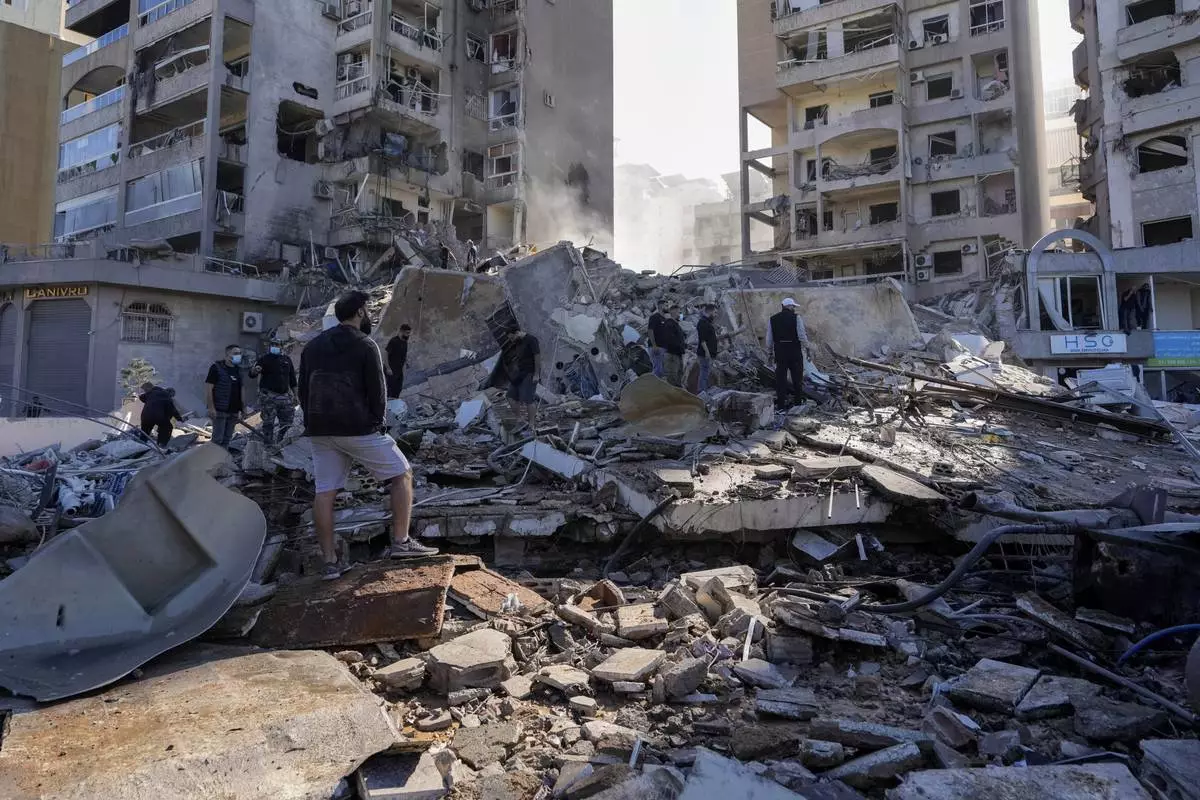
Residents check the site of an Israeli airstrike in Tayouneh, Beirut, Lebanon, Friday, Nov. 15, 2024. (AP Photo/Hassan Ammar)
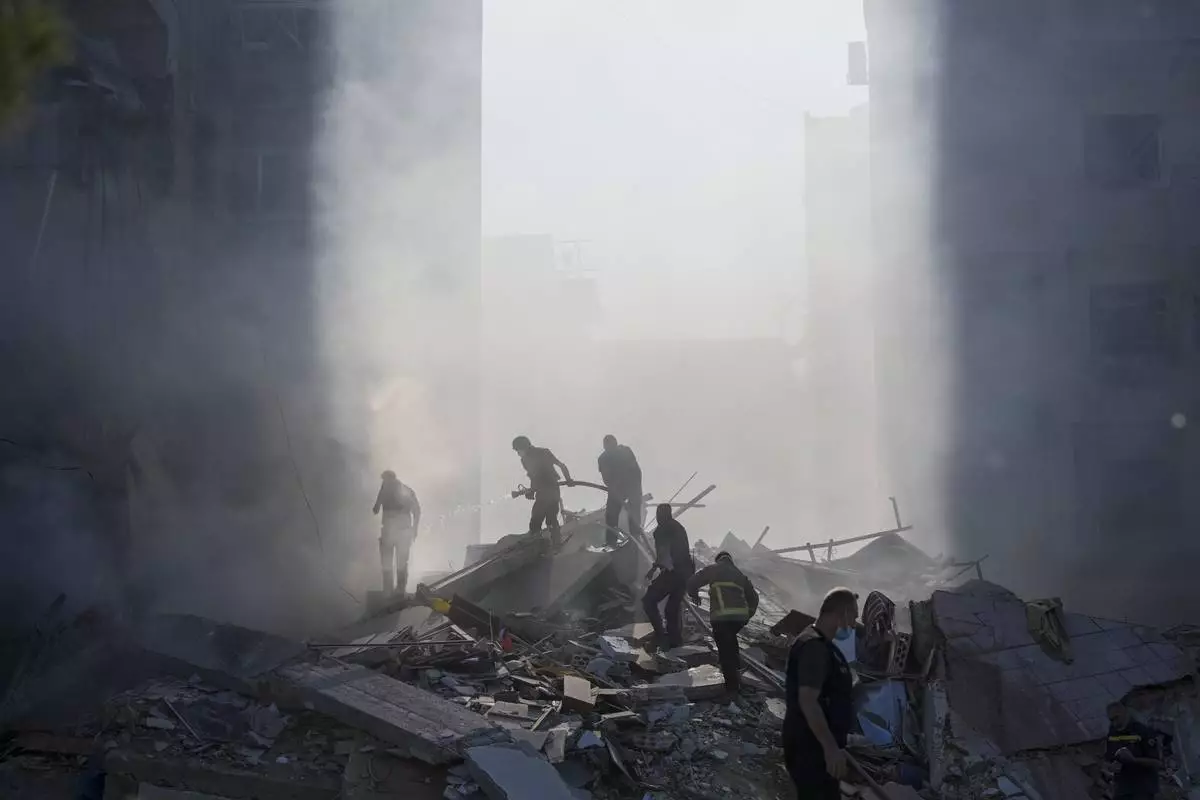
Civil defense workers extinguish a fire as smoke rises from the site of an Israeli airstrike in Tayouneh, Beirut, Lebanon, Friday, Nov. 15, 2024. (AP Photo/Hassan Ammar)
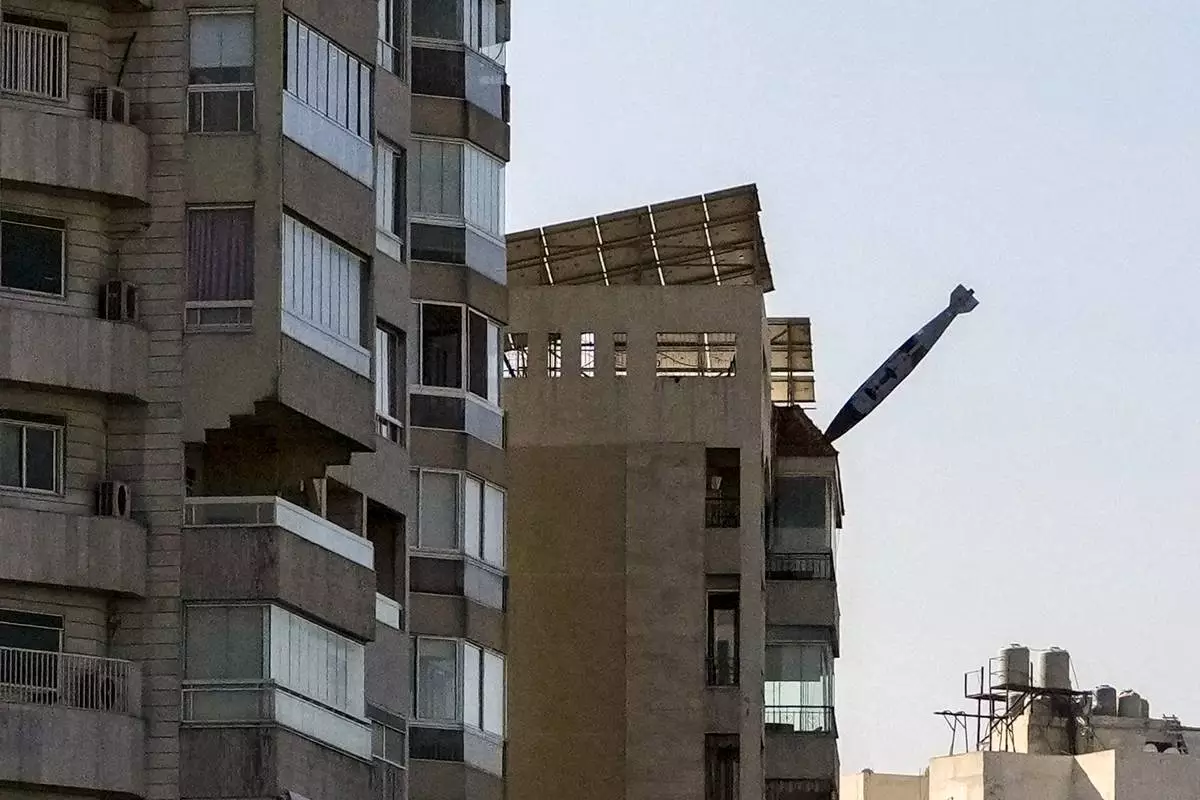
A bomb dropped from an Israeli jet prepares to hit a building in Tayouneh, Beirut, Lebanon, Friday, Nov. 15, 2024. (AP Photo/Hassan Ammar)
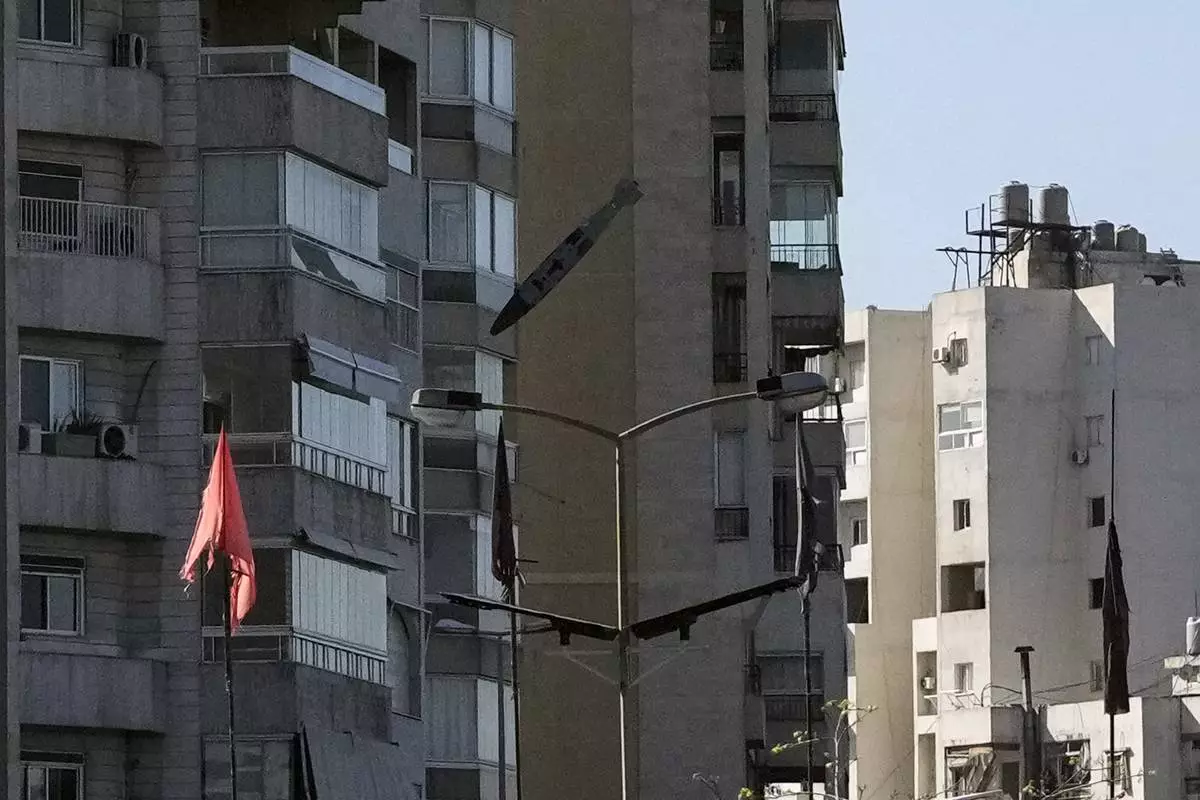
A bomb dropped from an Israeli jet hits a building in Tayouneh, Beirut, Lebanon, Friday, Nov. 15, 2024. (AP Photo/Hassan Ammar)
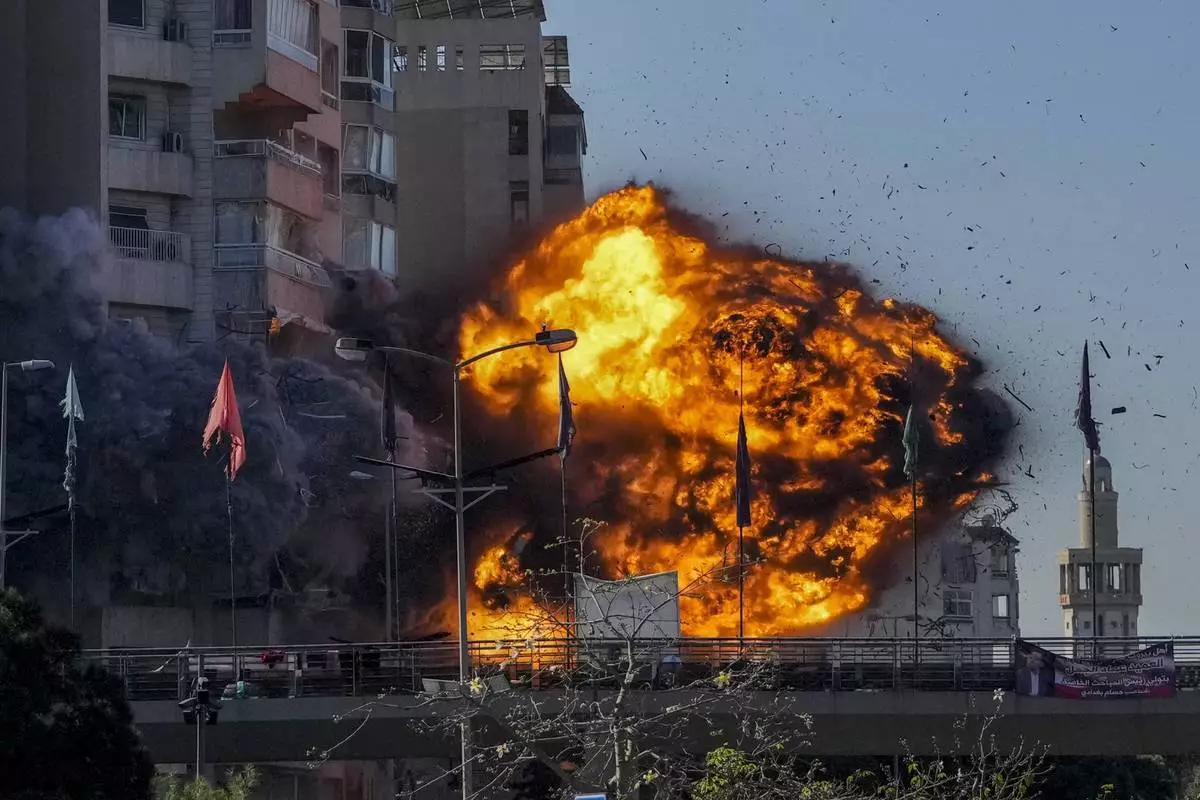
Thick smoke and flames erupt from an Israeli airstrike on Tayouneh, Beirut, Lebanon, Friday, Nov. 15, 2024. (AP Photo/Hassan Ammar)
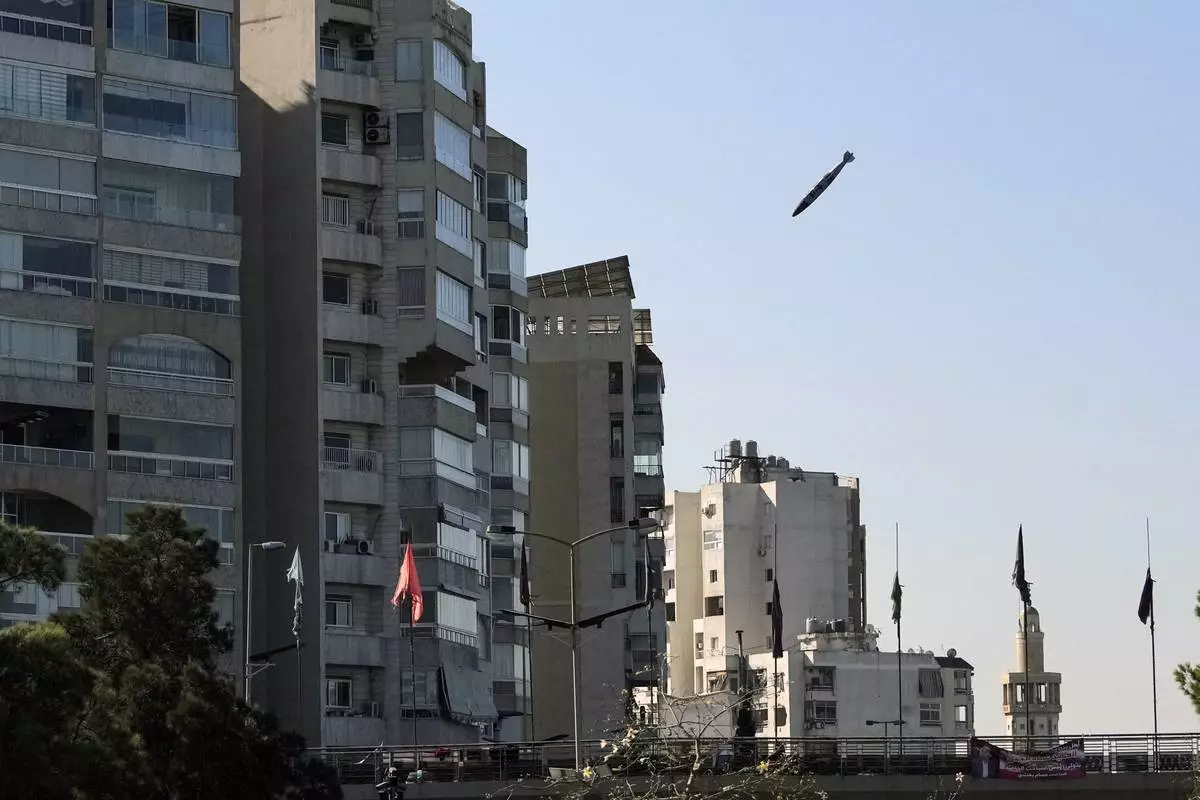
A bomb dropped from an Israeli jet prepares to hit a building in Tayouneh, Beirut, Lebanon, Friday, Nov. 15, 2024. (AP Photo/Hassan Ammar)






